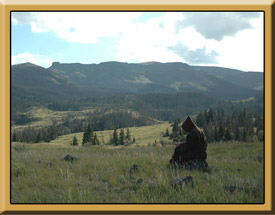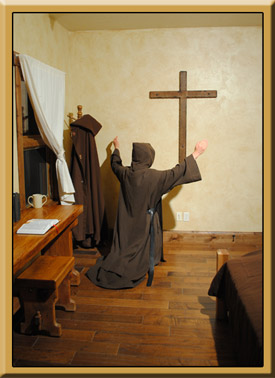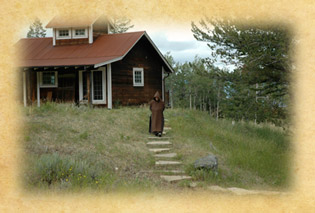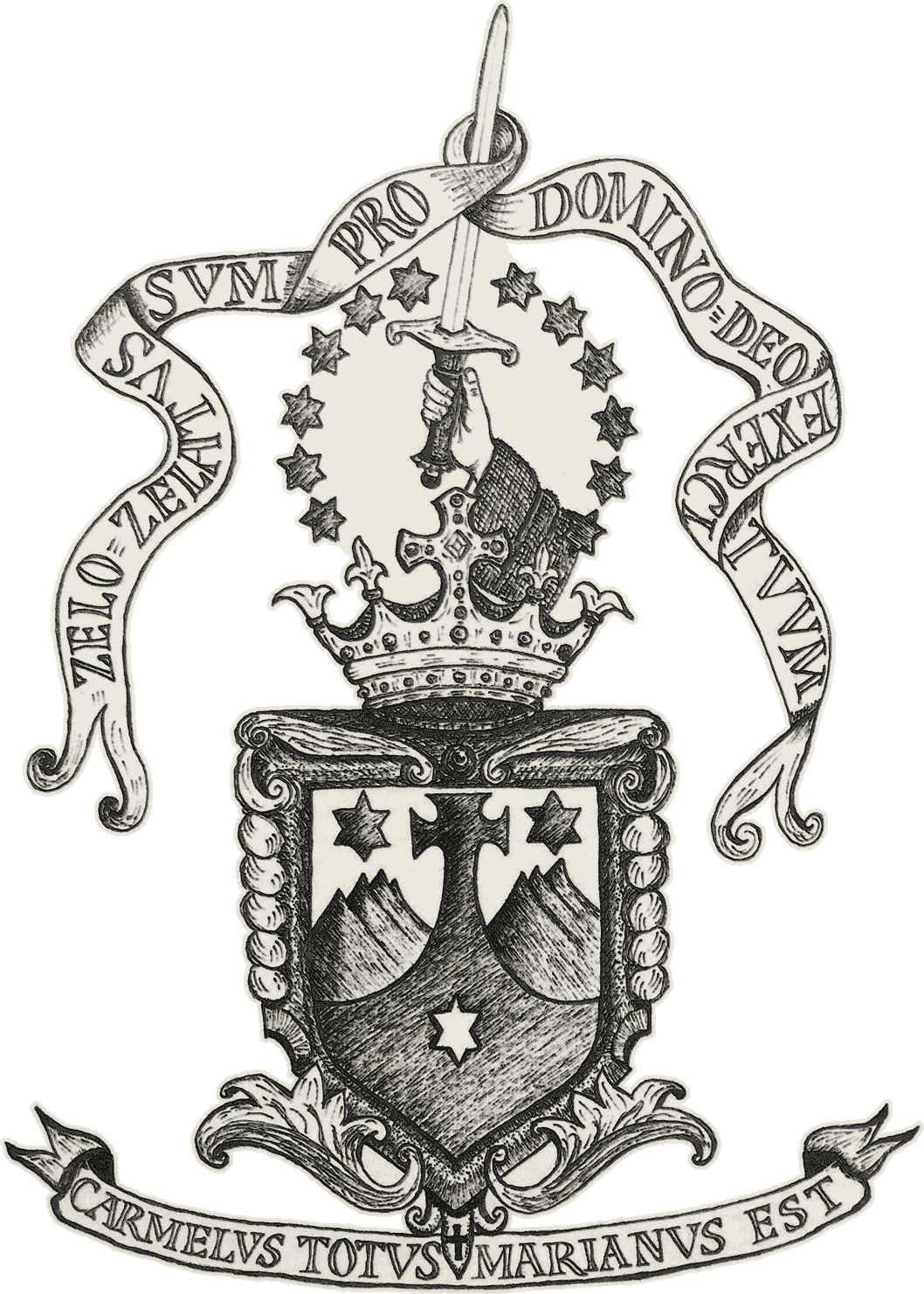

Beginning with the prophet Elijah or Elias in the Old Testament, throughout the apostolic period of solitary anchorites in the environs around Mount Carmel, confirmed in the first Latin Fathers to settle around the Spring of Elijah at the time of the Crusades, and solidly affirmed by the Carmelite reformers Ss. Teresa of Jesus and John of the Cross, the Carmelite Family is essentially eremitical. Put simply, each and every Carmelite is a hermit! The genius of the seraphic doctors Ss. Teresa and John consists in their ability to formulate a way of life that is solitary, yet lived in a family united by bonds of fraternal charity.
Like St. Teresa of Jesus, the Carmelite Monks of Wyoming believe that while God is calling countless young men to this extraordinary vocation, few are able to healthily embrace complete solitude and silence, even from their brothers in community, from their first moments in consecrated life. Instead, the monastic life with its ideal joining of times of solitude and community advances the pursuit of virtue in young religious and eschews the dangers omnipresent in immediate eremitism from the beginning of religious life.
The monks steadfastly maintain the very real possibility for any choir monk in the community, after a number of years in community life and mature discernment with his spiritual director, to embrace still more radical seclusion as a lifelong hermit following a probationary period. Thus, the Carmelite Monks of Wyoming have the possibility within the vocation of complete and inviolable silence and solitude. According to this understanding of what it means to be a hermit,
every Carmelite monk is a hermit, but a certain few may be called to withdraw still more into a lonely hermitage within a hidden ravine to commune with God in love.
Although rare, the possibility of the Carmelite hermit vocation within the community witnesses to the real progression in the spiritual life of each monk. While many candidates will find this possibility of eremitism exciting, nonetheless an honest assessment of one's spiritual life and virtue makes certain the high degree of personal holiness necessary for the life of a hermit to be fruitful for the Church and the world. Contrary to popular belief, an ideal candidate to the life of a Carmelite hermit is not someone who despises human interaction or lacks communication skills, but rather someone whose whole life has been consumed in the love of God and who has reached such contemplative heights in the common life of the other monks as to be called by God to become a solitary of love.


